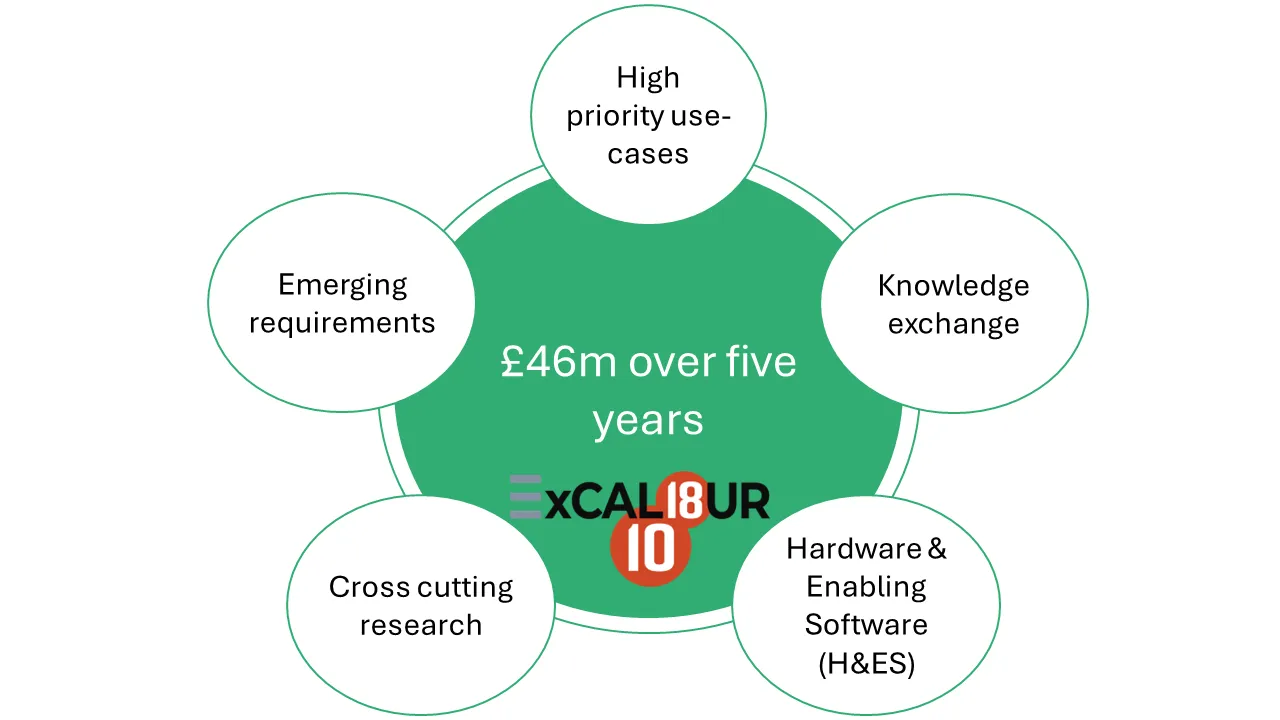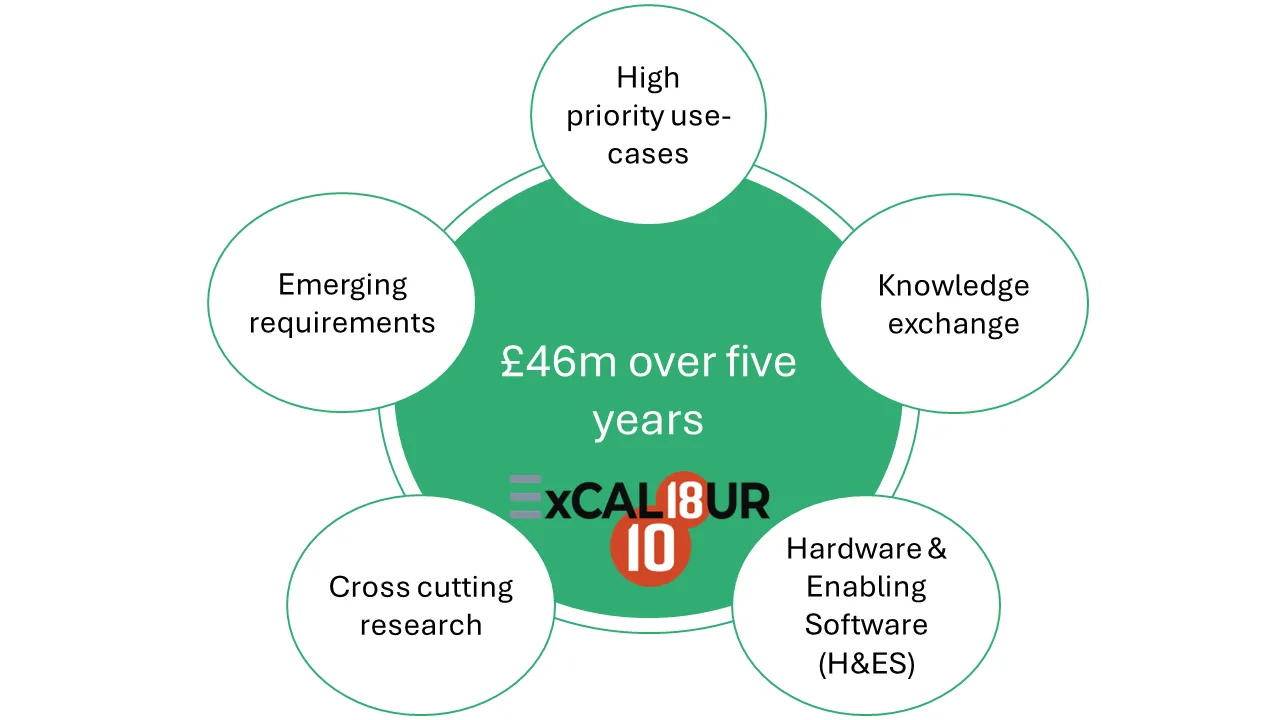

Exascale Computing Algorithms & Infrastructures Benefiting UK Research Program
Monday, May 13, 2024 3:00 PM to Wednesday, May 15, 2024 4:00 PM · 2 days 1 hr. (Europe/Berlin)
Foyer D-G - 2nd floor
Project Poster
Computational PhysicsEarth, Climate and Weather ModelingEducation and TrainingEmerging Computing TechnologiesExtreme-scale Algorithms
Information
Poster is on display.
The Exascale Computing ALgorithms & Infrastructures Benefiting UK Research (ExCALIBUR) programme is a research effort aiming to enable exploitation of future supercompters by the next generation of high-performance simulation software. Focused heavily, although not exclusively, around weather and climate and fusion energy workloads, this programme aims to further develop the major software and algorithmic building blocks required for exascale supercomputing. Funded by the UK, and running between 2019 and 2025, the programme comprises five major themes; high priority use-cases, cross cutting exascale techniques and technologies, next-generation Hardware and Enabling Software (H&ES), knowledge exchange, and emerging requirements for HPC applications. Initially activities identifying specific exascale use-cases and requirements across key scientific and engineering domains were undertaken which then fed into calls for cross-cutting exascale technology projects. Working with the use-cases to support their use of large-scale HPC, these have ranged across domain specific languages, quantum computing, machine learning for computation, exascale IO, workflows, simulation code coupling, task-based parallelism, and parallel in time methods. Concurrently, testbeds have been stood-up to explore next-generation computing architectures which include FPGAs, RISC-V, Graphcore, Arm, and Cerebras CS-2, and benchmarking for evaluation. Projects supporting, encouraging, and training HPC scientific software developers (RSEs) have run as well as a general focus across the program on knowledge exchange. Lastly, emerging areas who are not, but would benefit from, using HPC have been identified and activities underway to enable their workloads on supercomputers. We are keen to collaborate with the HPC community, to share our successes and explore future opportunities
The Exascale Computing ALgorithms & Infrastructures Benefiting UK Research (ExCALIBUR) programme is a research effort aiming to enable exploitation of future supercompters by the next generation of high-performance simulation software. Focused heavily, although not exclusively, around weather and climate and fusion energy workloads, this programme aims to further develop the major software and algorithmic building blocks required for exascale supercomputing. Funded by the UK, and running between 2019 and 2025, the programme comprises five major themes; high priority use-cases, cross cutting exascale techniques and technologies, next-generation Hardware and Enabling Software (H&ES), knowledge exchange, and emerging requirements for HPC applications. Initially activities identifying specific exascale use-cases and requirements across key scientific and engineering domains were undertaken which then fed into calls for cross-cutting exascale technology projects. Working with the use-cases to support their use of large-scale HPC, these have ranged across domain specific languages, quantum computing, machine learning for computation, exascale IO, workflows, simulation code coupling, task-based parallelism, and parallel in time methods. Concurrently, testbeds have been stood-up to explore next-generation computing architectures which include FPGAs, RISC-V, Graphcore, Arm, and Cerebras CS-2, and benchmarking for evaluation. Projects supporting, encouraging, and training HPC scientific software developers (RSEs) have run as well as a general focus across the program on knowledge exchange. Lastly, emerging areas who are not, but would benefit from, using HPC have been identified and activities underway to enable their workloads on supercomputers. We are keen to collaborate with the HPC community, to share our successes and explore future opportunities
Format
On-site


